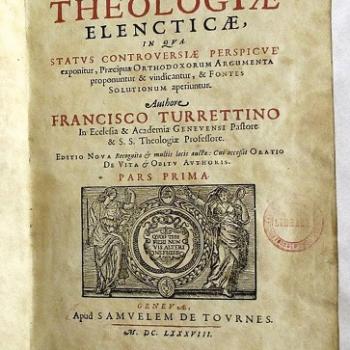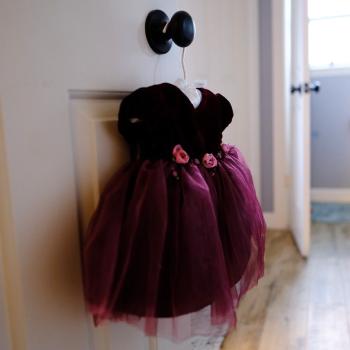Lectionary Reflections
Luke 1:39-56
Thursday, May 31, 2012
The Visitation of Mary to Elizabeth
My niece is expecting a baby in mid July. My daughter's sister-in-law is expecting at about the same time. Both young women are holding baby showers in the next few weeks that are too far away for me to attend. Fortunately, I can attend this one taking place in Luke, Chapter One.
I hope it's not too irreverent to think of this meeting of Mary and Elizabeth as a first-century baby shower of sorts. It was a gathering like 21st-century baby showers in some ways. Pregnant women getting together to support one another. Conversation that runs the gamut from the mundane to the monumental aspects of pregnancy and motherhood: cravings, hopes, and fears about a new role in life, which pediatrician to choose. In other ways Mary and Elizabeth's meeting was not like any shower I've ever been to. There were only two women present, and the only gifts exchanged were those from God: the ability to conceive a child in the first place, an awareness of their place in salvation history, and the guiding, inspiring presence of the Holy Spirit in living out their roles. The other key difference is that the impact of this meeting extends many centuries into the future, to the present day, in several significant ways.
At the Intersection of Two Stories
This scene is part of a larger, overarching story of salvation. The overarching story line with which Luke opens his gospel is the story of John and Jesus, the relationship of the forerunner of the Messiah (John the Baptist) and the Messiah, Israel's expectation and its arrival. The two stories of John and Jesus intersect in the meeting of their mothers. This meeting draws on prior themes in the traditions of bold women in Israel's history and it reaches into the present to inspire us, men and women alike, with boldness today.
A Scene in Which No Men Are Present
In this scene the two women meet and converse without the presence of any male character (other than their unborn babies). Biblical scholar Richard Bauckham points out that the Bible is an "androcentric narrative" and as such rarely includes scenes in which women appear together without men (51). There are some exceptions to that rule; several "women only" passages we find in the Hebrew Bible (from Bauckham, 51):
- The daughters of Lot discuss getting their father drunk so they can lie with him and get pregnant (Gen. 19:32, 34).
- Leah gives Rachel mandrakes so she can have a night with Jacob (Gen. 30:14-15).
- Moses' sister negotiates with Pharaoh's daughter to find a nurse for the baby in the basket and brings Moses' mother to fill the position (Ex. 2:1-10).
- The mother of Sisera (Canaanite leader killed by Jael) consults with her ladies in waiting as to why he isn't home yet. (Because he is lying dead in Jael's tent, a nail pounded through his temple.) (Judg. 5:28-30)
- Peninnah torments Hannah for her inability to conceive a child (1 Sam. 1: 1-8).
- Ruth and Naomi in the Book of Ruth: Ruth refuses to leave Naomi. The two travel from Moab to Judah and amicably work out the details of their future in a new land.
- A slave girl suggests to Naaman's wife that he should go to the prophet in Samaria (Elisha) (2 Kgs. 5:2-3).
Given the rare occurrence of "women only" scenes in Scripture, it is all the more significant that Luke bookends his gospel with them. He begins with Elizabeth and Mary and he ends with the women who observed Jesus' burial and went to the tomb on Easter morning (Lk. 23:55-24:4).
As one commentator points out, "The first two chapters of Luke invite the reader into the world of women and begin the story of Jesus from their perspective." (Reid, 55)
A Scene in Which Rivalry between Women Is Missing
One could certainly argue that the women listed above were only doing what needed to be done. Still, among these scenes of drunken incest in a cave, the bartering of husbands in a field, and murder in a tent, the meeting of Mary and Elizabeth looks pretty wholesome. There is no sense of opposition or rivalry between the two women. Their relationship is less like the bitter rivalry between Rachel and Leah and more like the collaborative effort between the sister and mother of Moses and the Pharaoh's daughter, or the amicable relationship between Ruth and Naomi. The relationship between older woman and younger woman present in Naomi and Ruth finds a parallel in that of Elizabeth and Mary.
A Scene in Which Women Are Blessed
In this scene of Elizabeth and Mary, both women are portrayed as having received a blessing and of being empowered by God to play a part in conveying a blessing to future generations. They are by no means the first such women in Israel's history. Elizabeth is one of several Israelite mothers of sons important in God's purposes for his people. Like several of them, Elizabeth was enabled to bear a child by the special favor of God.





